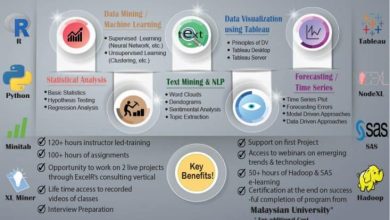Any company that wants to take advantage of the Salesforce platform fully should invest in hiring a Salesforce developer. When creating tailor-made solutions for organizations, hiring a Salesforce developer is indispensable. They are experts in using Salesforce’s many tools and features, including Apex, Visualforce, Lightning, and integration.
Businesses must have a straightforward recruiting procedure to compete for the best Salesforce developers. Finding a developer that is a good cultural match for your company and having the right technical chops requires a systematic and all-encompassing strategy.
Using a systematic recruiting procedure, you may improve your odds of finding a competent Salesforce developer who will increase your company’s success. Let’s discuss and explore the untold mystery to hire dedicated Salesforce developer step by step:
Unlock the power of Salesforce development project with Salesforce developer
Salesforce is the industry-leading CRM platform in the cloud, facilitating the administration of sales, marketing, customer care, and other core company functions. It offers features and capabilities to enable efficiency, enrich client communication, and stimulate expansion.
Salesforce’s primary function is to act as a database for a company’s customer and prospect data, making it easier to keep tabs on and manage customer interactions. Lead and opportunity tracking, sales forecasting, email integration, automated workflows, and analytics are just some of the features offered by the platform.
With its adaptability and scalability, Salesforce can be used by businesses of any size and sector. The platform may be tailored to any organization’s unique requirements by adding new objects, features, processes, and reports.
This platform suits users of all skill levels because of its intuitive design, thorough documentation, and active user community. Constant upgrades that add new features and improvements to the platform show Salesforce’s dedication to innovation in the face of changing business demands and technology developments.
Best practices to Hire a Salesforce developer
-
Define Your Requirements
Define your needs for the Salesforce developer position before beginning the recruiting process. Think about the knowledge, expertise, credentials, and abilities you need. Find out whether you require a developer well-versed in Apex, Visualforce, Lightning, or another Salesforce technology. You may improve your chances of finding qualified applicants by being specific about what you seek.
-
Create a Compelling Job Description
Create an accurate and engaging job description that highlights all the duties involved. You should describe your firm, its core principles, and the Salesforce developer’s role. Put your best foot forward regarding your education, work history, and credentials. Consider any special features of your business or current initiatives that may help you get top employees.
-
Advertise the Position in Appropriate Places
Utilize various channels to advertise for new employees. Put up ads on job boards, LinkedIn, and other professional networks, as well as on Salesforce-specific forums. Use networking sites like LinkedIn to spread the word. Participate in Salesforce user groups and attend appropriate events to meet qualified people. Finding skilled Salesforce developers might be difficult, but networking can help.
-
Conduct Initial Interviews and Screen Resumes
Go through the applications sent to you and create a shortlist of people who satisfy your basic requirements. Check their technical knowledge, expertise, and general compatibility via phone or video interviews. Investigate their Salesforce development knowledge, technology competence, integration experience, and problem-solving skills by asking pertinent questions. Determine how well they can interact with others and work together.
-
Technical Evaluation
Candidates’ Salesforce development skills may be evaluated via a technical evaluation. Coding exercises, scenario-based questions, and tests on relevant Salesforce technologies are all viable options for this evaluation. To assess a candidate’s technical skills, use online tools like Salesforce Trailhead or HackerRank or make your test. Determine how proficient they are in creating unique solutions in Salesforce.
-
Examine Samples of Work and Portfolios
Ask for examples of their work or portfolios to learn more about the applicants. Check how well they stick to standards, how well they innovate, and how well they can scale their solutions. Evaluate their prior projects’ difficulty level and importance to ensure they fit your company well.
-
Meet with Candidates in Person or Online
Request interviews from the best prospects. Technical inquiries, exercises in problem-solving, and queries about the candidate’s personality are all fair game in an interview setting. Test their knowledge of Salesforce, ability to work in teams, and communication skills. Evaluate how well they can think critically, solve problems, and fit in with the company’s culture.
-
Confirm Prior Experience and References
After shortlisting applicants, it is essential to contact their references to learn more about their backgrounds, abilities, and work ethic. The candidate’s technical skills, teamwork, dependability, and overall performance should all be discussed with references. This verifies the information supplied by the applicants throughout the employment process and ensures you are making an educated selection.
-
Making an Offer and Getting You Onboarded
Choose the best applicant and give them a generous offer. Consider starting income, benefits, opportunity for advancement, and, if available, relocation aid. Once the applicant accepts the offer, you should ensure a quick and easy transition into the role. You should provide your new employee with all the time and information they need to get comfortable with your company, its projects, and the Salesforce platform.
Responsibilities of a Salesforce Developer
A Salesforce developer is indispensable when creating, tailoring, and deploying solutions on the Salesforce platform. Their job is to use their technical knowledge to tailor Salesforce to each company’s requirements and facilitate the platform’s smooth rollout and adoption. Typical tasks for a Salesforce developer include:
-
Modular Programming
Salesforce developers use tools like Apex and Visualforce to build unique apps and features for their clients. When developing applications for the Salesforce platform, developers rely on Apex, a proprietary programming language. They create new objects, fields, workflows, triggers, and automation procedures for special needs. The key is to learn about the company’s requirements, assess whether or not they can be met technically, and then translate those findings into workable solutions.
-
Personalization and Setup
Salesforce developers set up and tweak the platform to work with a company’s unique procedures and routines. They collaborate extensively with stakeholders to ascertain needs and implement them using Salesforce configurations. Layouts, pages, records, and validation rules may all be developed from scratch. They also automate corporate procedures using tools like a process builder and approval workflows. They improve the user experience and efficiency by tailoring the Salesforce interface.
-
Managing Information
Salesforce, like every other CRM system, relies heavily on its data. Data management in Salesforce is the responsibility of Salesforce developers. Data modeling, object connection definition, and data security and integrity all fall within their purview. They design and keep updated user-facing dashboards and reports that provide actionable data. When switching from an older system to Salesforce, they devise data transfer methods and carry them out.
-
Deployment and Verification
Salesforce developers do extensive testing to guarantee that their solutions work as intended and perform as expected. They use unit testing to ensure their code is correct and comprehensive. They also do integration testing to make sure everything works together correctly. They also work with other parties to test user acceptability and collect data. Salesforce developers deploy modifications after the solutions have been tested and authorized, using technologies like Salesforce’s Change Sets or version control to adhere to best practices.
-
Help with Issues and Maintenance
Developers working on Salesforce are available round-the-clock to assist users and system administrators with any issues. They debug code, enhance performance, research, and fix user-reported concerns. They collaborate closely with interdisciplinary groups to identify and resolve problems inside the system. Together with Salesforce administrators, they oversee the administration of user permissions, security measures, and other system parameters. The proper functioning of the Salesforce platform relies heavily on their technical knowledge and problem-solving abilities.
Stay on Advantage by hiring dedicated Salesforce developer with CRMJetty
Attracting and identifying outstanding Salesforce developers demands a disciplined strategy. If you are facing bad times with your Salesforce developer and need someone you can fully rely on, CRMJetty is your pick. We at CRMJetty have a team of highly competent developer who always stays committed to bringing out the best in your development project.
With our developers, you will only step up the path to success. Do not wait any longer. Hire Salesforce developer from us today.





